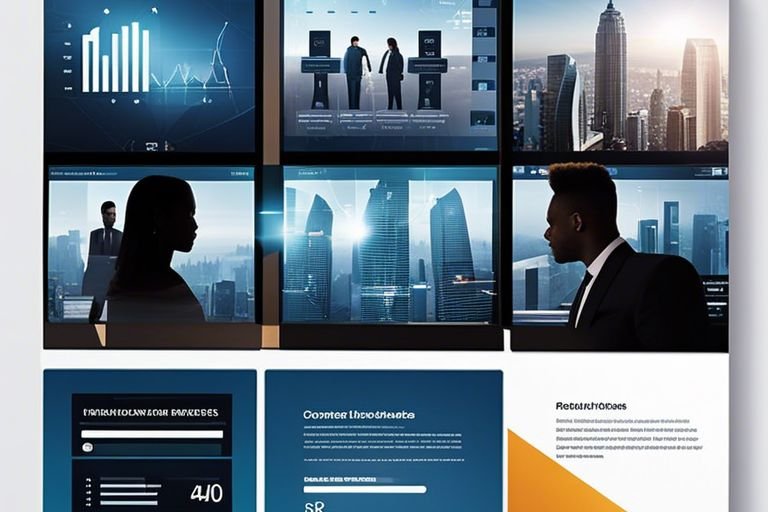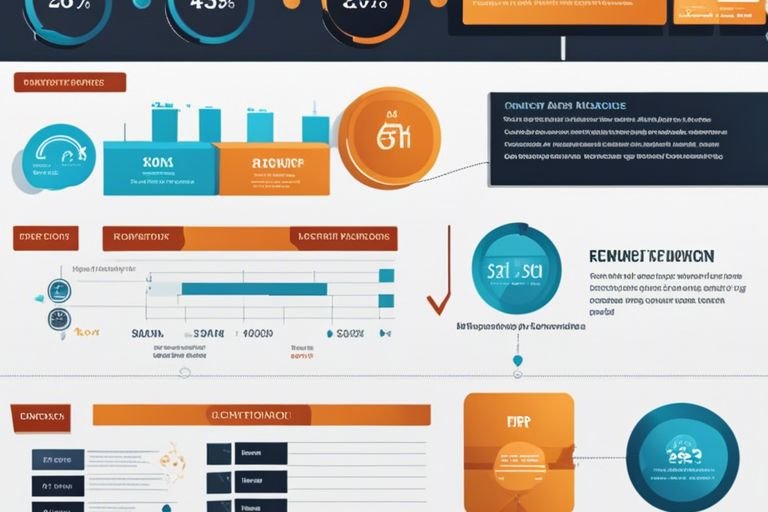How to Choose the Right ERP Vendor for Your Business?

Ensuring the successful implementation of an Enterprise Resource Planning (ERP) system requires careful consideration and selection of the right vendor. With a myriad of products and vendors available, it can be overwhelming to choose the best fit for your business. However, by following a thorough evaluation process and understanding the key factors to consider, you can confidently choose a vendor that aligns with your business needs and goals. In this blog post, we will explore the essential steps and criteria to help you make an informed decision when selecting the right ERP vendor for your business.
Key Takeaways:
- Understand your business needs: Before choosing an ERP vendor, it is essential to have a clear understanding of your business requirements and goals. This will help in identifying the right vendor who can provide the necessary features and functionality to support your business operations.
- Evaluate vendor experience and expertise: It is crucial to assess the vendor’s experience and expertise in your industry and with similar sized companies. Look for vendors who have a proven track record of successful ERP implementations and can provide references from satisfied clients.
- Consider long-term support and scalability: When selecting an ERP vendor, consider their long-term support capabilities and the ability to scale the ERP system as your business grows. Ensure that the vendor offers reliable customer support, regular updates, and can accommodate the future needs of your business.
Understanding Your Business Requirements
The first step in choosing the right ERP vendor for your business is understanding your specific business requirements. This involves a thorough assessment of your current business processes, as well as defining your ERP objectives and goals.
Assessing Your Business Processes
Your business processes are the backbone of your operations, and understanding them is crucial in selecting the right ERP vendor. Take a close look at how your products are manufactured, how your personas are managed, and how your subjects are tracked. Identify any inefficiencies or bottlenecks in your current processes, as well as any unique requirements that may be specific to your industry or business.
Defining Your ERP Objectives and Goals
On top of assessing your business processes, it is important to define your ERP objectives and goals. Requirements such as scalability, integration with existing systems, and support for multi-site operations should be considered when outlining your objectives. Clearly defining your goals will help you evaluate potential ERP vendors and ensure that the solution you choose aligns with your business needs and long-term objectives.
Requirements such as flexibility, customization, and regulatory compliance should also be taken into account when defining your ERP objectives and goals. A comprehensive understanding of your business requirements will guide you in identifying a vendor that can provide a tailored ERP solution that meets your specific needs.
The ERP Marketplace Overview
Some businesses looking to implement an ERP system may feel overwhelmed by the wide array of options available in the marketplace. With numerous vendors claiming to offer the best solutions, it can be challenging to navigate the ERP landscape and make an informed decision.
Types of ERP Vendors
Some ERP vendors cater to specific industries, while others offer solutions designed for businesses of all sizes. Any organization in the market for a new ERP system should consider the following types of ERP vendors:
- Industry-specific vendors
- Enterprise-level vendors
- Cloud-based vendors
- Open-source vendors
- Custom solution providers
Any organization’s specific needs and requirements will help determine the most suitable type of vendor for their business.
Key Features and Technologies of Modern ERP Solutions
Any modern ERP solution should encompass a range of key features and technologies to meet the needs of today’s businesses. These features may include:
- Cloud-based deployment
- Mobile access
- Data analytics and business intelligence
- Integration capabilities
- Scalability and flexibility
Though the specific features required will vary depending on the nature and size of the organization, modern ERP solutions should offer the latest technologies to support efficient and streamlined operations.
Additionally, a comprehensive ERP system may include modules for finance, supply chain management, human resources, and customer relationship management. A robust solution will provide visibility and control across all areas of the business, empowering organizations to make data-driven decisions and improve overall performance.
The Selection Process
Your search for the right ERP vendor for your business should begin with a thorough and structured selection process. This will ensure that you make an informed decision based on the specific needs and goals of your organization. The selection process typically involves evaluating ERP vendors based on specific criteria and then shortlisting and comparing the top contenders.
Criteria for Evaluating ERP Vendors
Any successful selection process begins with establishing a set of criteria for evaluating ERP vendors. These criteria may include factors such as cost, functionality, scalability, industry-specific expertise, customer support, and implementation timeline. It is important to prioritize these criteria based on the unique requirements of your organization to ensure that the selected ERP vendor can meet your specific needs.
Steps to Shortlisting and Comparing Vendors
Evaluating ERP vendors involves a systematic approach to shortlisting and comparing the options available in the market. This process can be broken down into the following two key steps:
| Shortlisting Vendors | Comparing Vendors |
| Conduct research and create a list of potential ERP vendors based on the established criteria. | Compare the shortlisted vendors based on their strengths and weaknesses in relation to the established criteria. |
| Request for proposals or demos from the shortlisted vendors to further evaluate their offerings. | Analyze the cost, functionality, scalability, and customer support offered by each vendor. |
Comparing and contrasting the offerings of different ERP vendors is crucial in making an informed decision. It enables you to identify the vendor that aligns most closely with your business needs and objectives.
Making the Decision
Unlike other business decisions, choosing the right ERP vendor requires thorough research and careful consideration. After evaluating the products, personas, and subjects, it’s time to make the final decision.
Conducting Demos and Pilot Programs
For conducting demos and pilot programs, it’s important to involve key stakeholders from various departments to ensure the chosen ERP system meets the specific needs of the business. This step allows the teams to experience the products in action and provides an opportunity to assess the usability and functionality of the ERP systems.
Reviewing Contracts and Total Cost of Ownership
Pilot reviewing contracts and total cost of ownership is crucial before making the final decision. This involves carefully analyzing the terms and conditions of the contracts and determining the overall cost of implementing and maintaining the ERP system over a period of time.
With the right ERP vendor in place, businesses will be able to improve efficiency, streamline processes, and ultimately achieve their long-term goals. By carefully conducting demos, pilot programs, and reviewing contracts, businesses can confidently make the decision that best suits their needs.

Implementation and Beyond
Despite choosing the right ERP vendor for your business, the success of the implementation and the long-term support and partnership will ultimately determine the impact the ERP system will have on your business.
Planning for a Successful Implementation
Successful implementation of an ERP system requires thorough planning and a well-defined strategy. It is essential to involve key stakeholders from different departments, including finance, operations, and IT, in the planning process. This will ensure that the ERP system meets the specific needs of each department and addresses any unique challenges they may face. Setting clear objectives and timelines for the implementation process is crucial to staying on track and achieving a successful rollout.
Ensuring Long-Term Support and Partnership
With an ERP system in place, it is important to ensure long-term support and partnership from the vendor. This includes regular system updates and maintenance to keep the ERP system running smoothly. Additionally, the vendor should offer ongoing training and support to help users fully utilize the system and address any issues that may arise. Establishing a strong partnership with the vendor will also allow for future enhancements and customizations to the ERP system as the business evolves.
The long-term support and partnership with the ERP vendor are essential to ensuring the continued success and efficiency of the ERP system. Regular updates, ongoing training, and a collaborative partnership will help to maximize the value of the ERP system for your business, allowing you to stay ahead of the competition and adapt to changing market conditions.
Conclusion
On the whole, choosing the right ERP vendor for your business is a crucial decision that requires thorough research and consideration of various factors. By assessing your company’s specific needs, budget, and long-term goals, you can narrow down your options and select a vendor that aligns with your requirements. It’s important to carefully evaluate the vendor’s track record, reputation, and level of customer support to ensure a smooth implementation and ongoing success of the ERP system. By following these steps and taking the time to make an informed decision, you can pave the way for a successful partnership with an ERP vendor that meets your business needs and sets the stage for efficiency, growth, and success in the long run.



